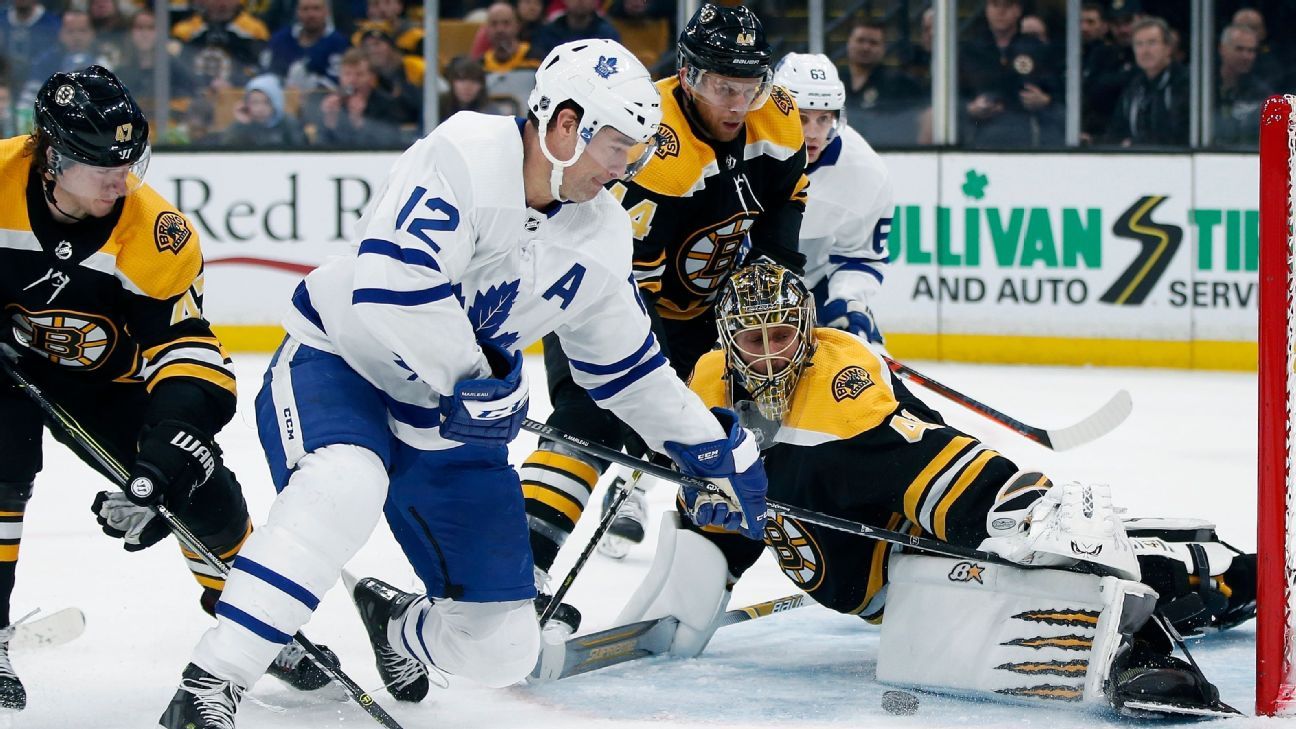VANCOUVER, British Columbia — The Toronto Maple Leafs found a taker for veteran center Patrick Marleau‘s contract, but it cost them a first-round draft pick.
The Leafs moved Marleau to the Carolina Hurricanes on Saturday morning, along with a conditional first-round pick and a seventh-round pick, both in the 2020 NHL draft. The Hurricanes sent back a sixth-round pick in the 2020 draft.
The condition on the first-rounder is that if the Leafs’ pick is in the top 10 in 2020, the Hurricanes will instead receive Toronto’s first-rounder in 2021.
Marleau had to waive his no-move clause for the deal.
Toronto general manager Kyle Dubas on Thursday said the Leafs were trying to “accommodate” the 39-year-old center. Marleau’s family recently moved back to the San Jose area, where he spent the first 19 years of his career, and Marleau put his Toronto home up for sale.
The expectation is that the Hurricanes will buy out the remaining year of his contract, making him a free agent and setting up a potential return out west at a much lower salary.
He has a cap hit of $6.25 million; because his contract was signed as an over-35 player, the full hit will count against the Carolina cap. Even after the Marleau trade, the Hurricanes have over $21 million in open cap space, but with 15 players under contract.
The cap situation for the Leafs just improved mightily. With over $14 million open, and more moves potentially on the way, Toronto is in a much better position to re-sign restricted free-agent forwards Andreas Johnsson, Kasperi Kapanen and especially leading scorer Mitch Marner.
The negotiations between Toronto and Marner have been contentious, with leaks to the media indicating they are far apart on money and term. Dubas has said that if Marner seeks out an offer sheet from another team to set his price with the Leafs, there’s no guarantee Toronto would match.
“I don’t think there’s any fear in addressing it. If it happens, it happens,” Dubas said. “It’s been clear to all that it’s going to be where they’re at. Where they fit in our internal economics, we’ll see. I hope it never comes to that. But I also don’t think it benefits to shy away from the fact that it may happen.”

